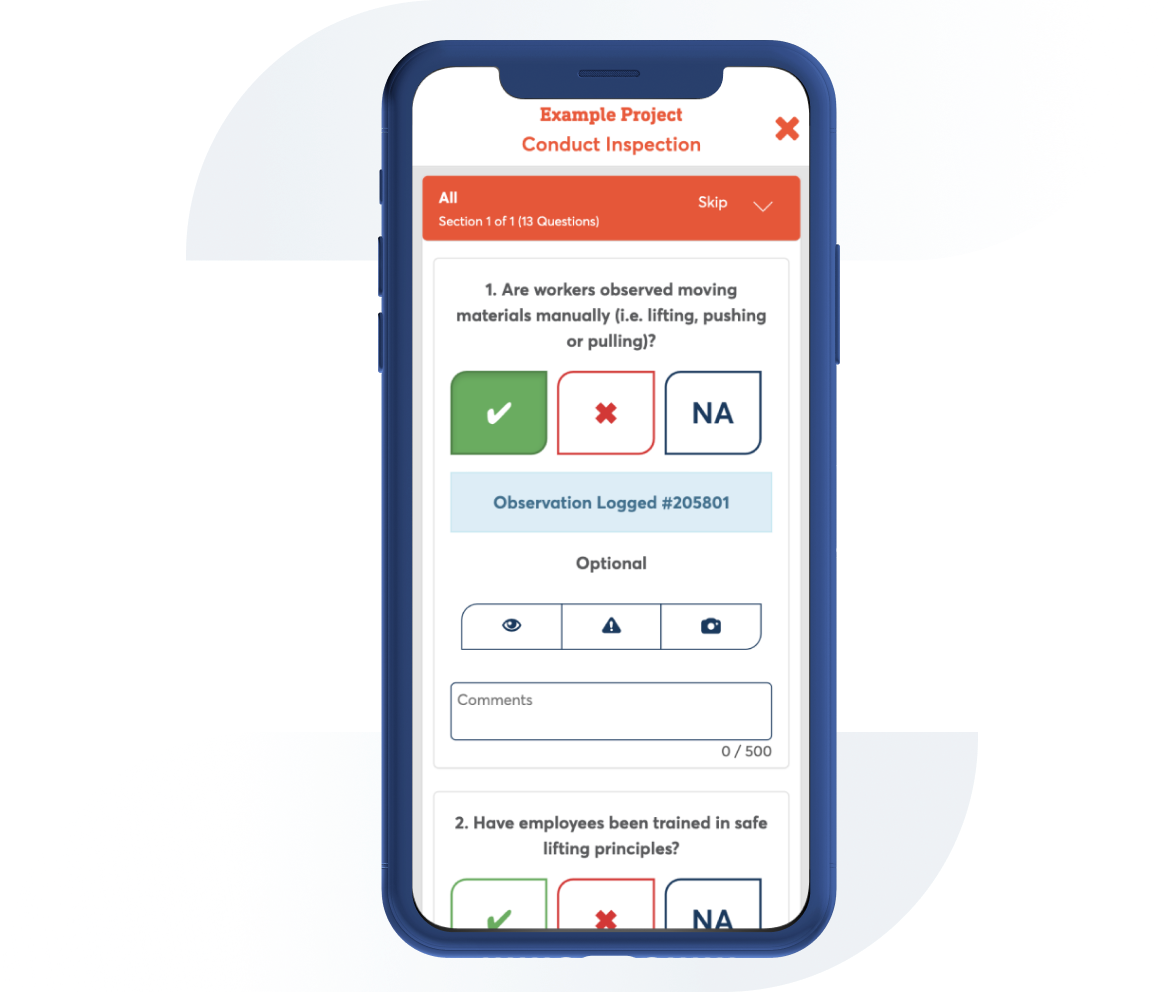Grain Handling Facility Safety Checklist
Contributor: Safesite Jurisdiction: OSHA
Grain handling facilities should use this OSHA checklist to identify and communicate potential hazards to their workforce. Training should be provided as well as safety and emergency equipment.

Template Preview
1. For grain handling facilities, has an emergency action plan that complies with the requirements of 29 CFR 1910.38 (a) been developed and implemented?
Actions
2. Are current employees, prior to starting work, trained in at least the following: (a) General safety precautions associated with the facility?
Actions
3. (b) Preventive measures for the hazards related to dust accumulations and common ignition sources?
Actions
4. (c) Procedures and safety practices applicable to their job tasks, such as choked legs, hot work, preventive maintenance, lockout/tagout, etc.?
Actions
5. (d) Special assignments, such as bin entry and handling flammable or toxic substances?
Actions
6. Are monthly visual inspections conducted and documented to ensure that fire extinguishers are in place, fully charged, undamaged and that they have not been tampered with or discharged?
Actions
7. Does each extinguisher have a tag or label securely attached that indicates the month and year the inspection, maintenance, states that recharging was performed and identifies the person performing the service?
Actions
8. Is personnel entry into into bins, silos, tanks, and other grain storage structures controlled with a Confined Space Entry Permit?
Actions
9. For entry into a confined space, Is all equipment (mechanical, electrical, etc.) that presents a danger to an entrant deenergized or isolated in a manner (such as lockout/tagout, disconnection, or blocking) that effectively protects an entrant?
Actions
10. For entry into a confined space, is the internal atmosphere in the space tested for oxygen content unless there is continuous natural air movement or continuous forced-air ventilation before and during entry?
Actions
11. Are entrants who walk or stand on or in grain that is deep enough to pose an engulfment hazard equipped with a lifeline or some alternative means that will prevent the entrant from sinking further than waist-deep in the grain?
Actions
12. Are emergency lighting units (I.e. EXIT lights and emergency lights) functionally tested at least monthly by pushing the test button for 30 seconds and recording the result?
Actions
13. Is the practice of "walking down grain" strictly prohibited?
Actions
14. Are emergency lighting units functionally tested at least annually for a minimum of 1 hours if the emergency lighting system is battery powered?
Actions
15. Are emergency ighting unit testing records available for inspection by the Authority Having Jurisdiction (AHJ)?
Actions
16. Are the eyewash covers in good condition, and do they pop off when water is turned on?
Actions
17. Does the emergency shower/eyewash station supply water at a temperature between 60 and 100 degrees Fahrenheit?
Actions
18. Is the emergency shower/eyewash unit installed within 10 seconds of travel from a likely point of contamination?
Actions
19. Are emergencyshower/eyewash unit testing records available for inspection by the Authority Having Jurisdiction (AHJ)?
Actions
20. Do all emergency Exit route doors kept unlocked from the inside while the building is occupied
Actions
21. Are all emergency Exit route hallways and corridors kept free from storage of materials or equipment that could impede emergency egress?
Actions
22. Write Comments or Remarks here:

Can't find what you are looking for?
